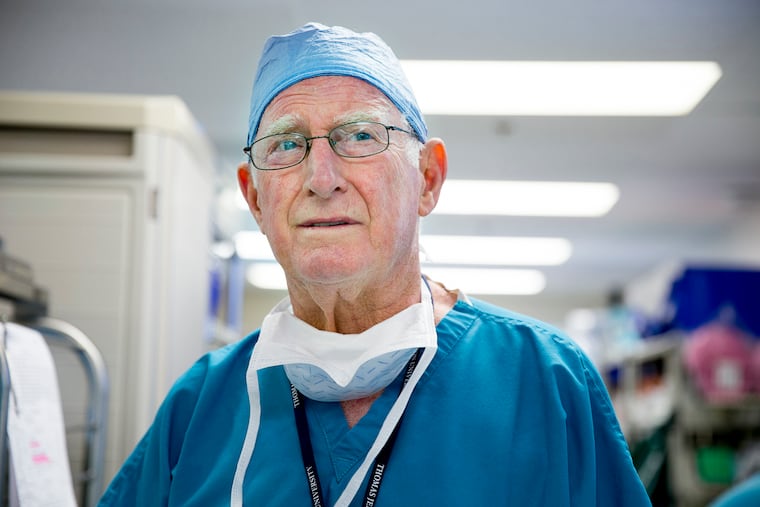Remembering Dr. Richard Rothman: What the legendary Philly surgeon taught me | Perspective
Medical student: The year I spent learning from Dr. Rothman was the greatest year of my life in medicine.

Richard Rothman was famous in Philadelphia and worldwide for his expertise in total joint replacement and the medical empire at the Rothman Institute. That is not how I knew him. My professional life as a spine surgeon was created by Dr. Rothman and Dr. F.A. Simeone. Dr. Rothman and Dr. Simeone edited and wrote the textbook, The Spine, and in 1984, Dr. Rothman and Dr. Simeone were famous for spine surgery worldwide. I was fortunate enough to come to Philadelphia to learn from them.
I felt incredible sadness when I learned that Dr. Rothman passed away last week. It has been 33 years since I left Philadelphia, but I think of Dr. Rothman and Dr. Simeone every week of my professional existence.
My story is about the influence that great teachers have in a professional life — in our conduct, in our rational thinking, in our honest performance.
>> READ MORE: Philadelphia surgeon Richard Rothman, 81, dies; leaves legacy of medical empire
The year I spent in Philadelphia was the greatest year of my life in medicine. I arrived in Philadelphia in July 2014 and left in July 2015, the last spine fellow at Pennsylvania Hospital. I was naïve, marginally skilled, and seeking some pathway toward the future. There was no definition.
Following the legacy of the spine fellows who preceded me, I was surrounded by the atmosphere of excellence at Pennsylvania Hospital and the Rothman Institute. The world I entered the first day at Pennsylvania Hospital was the world of spine surgery: the 6 a.m. Thursday morning spine lecture, office hours with Dr. Rothman and Dr. Simeone, the ritual afternoon orthopedic surgery conference, daily spine surgery hospital patient rounds, and the meticulous instruction in the craft of spine surgery in the operating room.
I accompanied Dr. Rothman to Penn one afternoon, and I listened as he gave his famous lecture on the Spine Algorithm for low back pain. He brought the audience into his world, identifying the inclusiveness of "our problem" and hopefully "our solutions." It was a lesson in humility and elegance. Afterward, he told me the criterion for a great lecture: "If everyone in the room can remember one thing from your lecture a year later."
When I was present during Dr. Rothman's office hours, I observed how to conduct oneself with grace when one had knowledge and others sought help. There was never an arrogance or distracted posture, as he listened to their stories, only focus and a gentle ushering towards a point where an opinion could be provided, a solution undertaken.
In surgery, I saw the technical precision required, but also how complete knowledge of an anatomic system was linked, and how mental flexibility and clarity allowed the best intra-operative decisions.
>> READ MORE: Philly's Richard Rothman turned a talent for replacing hips into a medical empire
At the end of the year, Dr. Rothman gave me a present as I was departing, a porcelain bowl with a replica of the famous painting of the Founding Fathers in debate at Independence Hall. It sits in a cabinet with other life mementos, clearly visible. What I learned in Philadelphia became the foundation for my future life, in a sense a personal constitution. I am drawn to this porcelain as if it is magical, as if it has been touched by greatness, and of course it has. In life, greatness often has shadowy definition. In Dr. Rothman, it was his being.
When I walk into a patient's room, when I perform surgery, when I ask what decision I should make, I can still hear a voice, sometimes Dr. Rothman's, sometimes Dr. Simeone's; the echo is from long ago but it is forever, as long as I still practice and as long as I am alive.
God bless Dr. Rothman for his generosity to all of us and his brilliance.
William Dillin is a spine surgeon at the Cedars-Sinai Kerlan-Jobe Institute in Los Angeles.